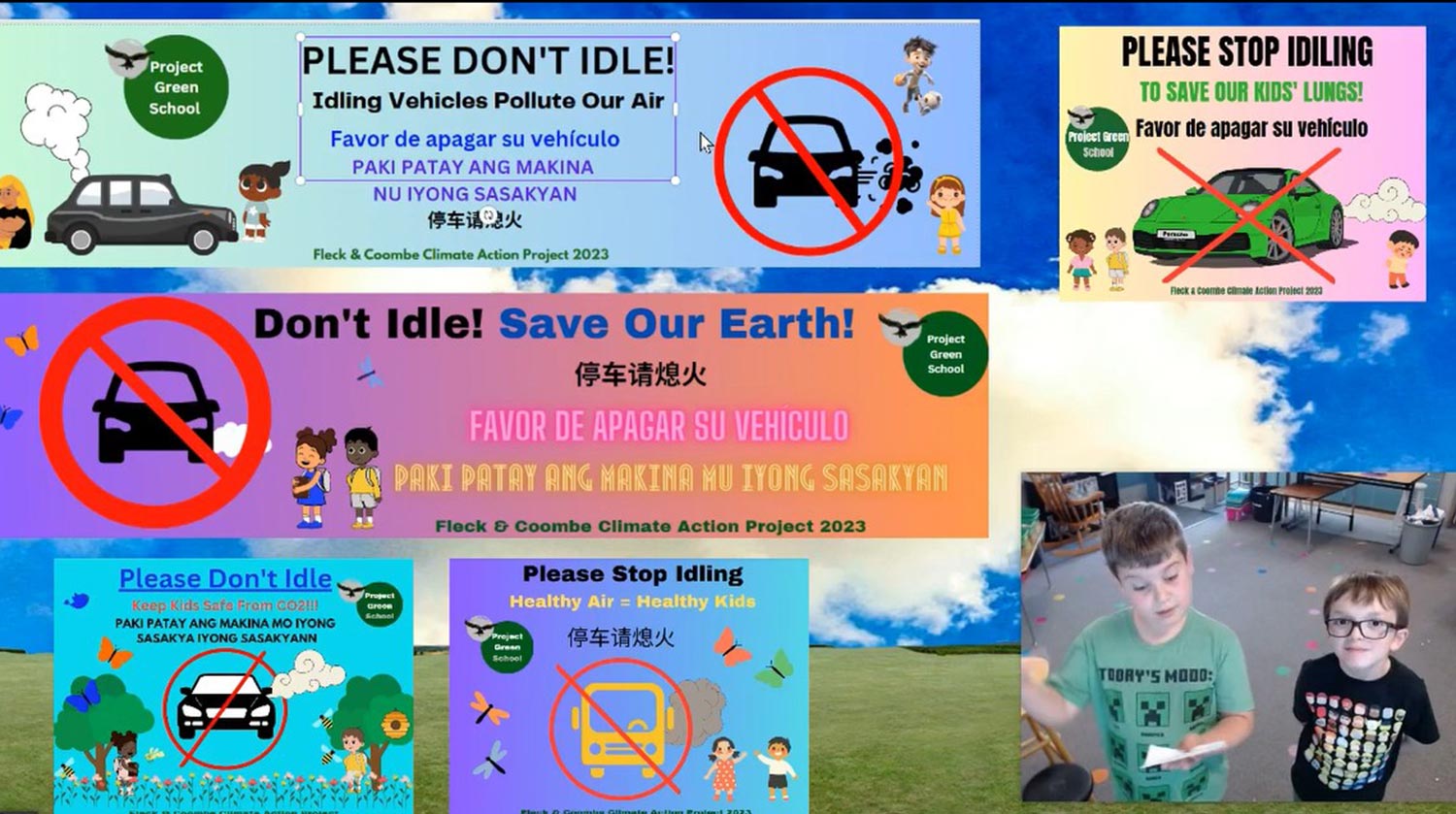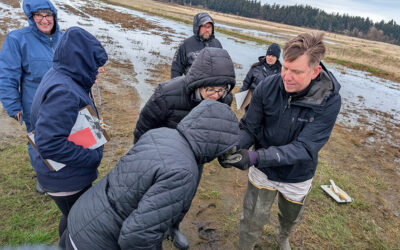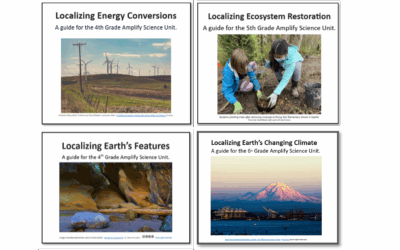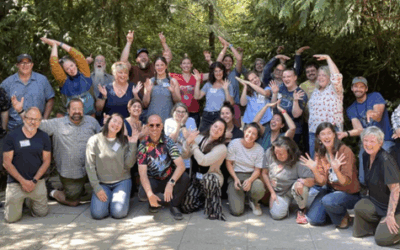This spring, IslandWood launched a new teacher professional development course called Community-Centered Climate Action, geared towards Third through Fifth grade teachers from around the Puget Sound.
During the five-part Community-Centered Climate Action Course, twenty teachers learned how to develop an easy-to-implement student-led Climate Action project that motivates and empowers students to research and create local solutions to mitigate air quality problems. Students built an understanding of how air pollution impacts their community and the climate and learned what community members are doing about it. By the end of the course, many teachers had helped support unique student-generated initiatives in connection with data gathered in their schoolyards. Together students and teachers developed and implemented their own student-led community action projects and shared what they learned about air quality with their community.
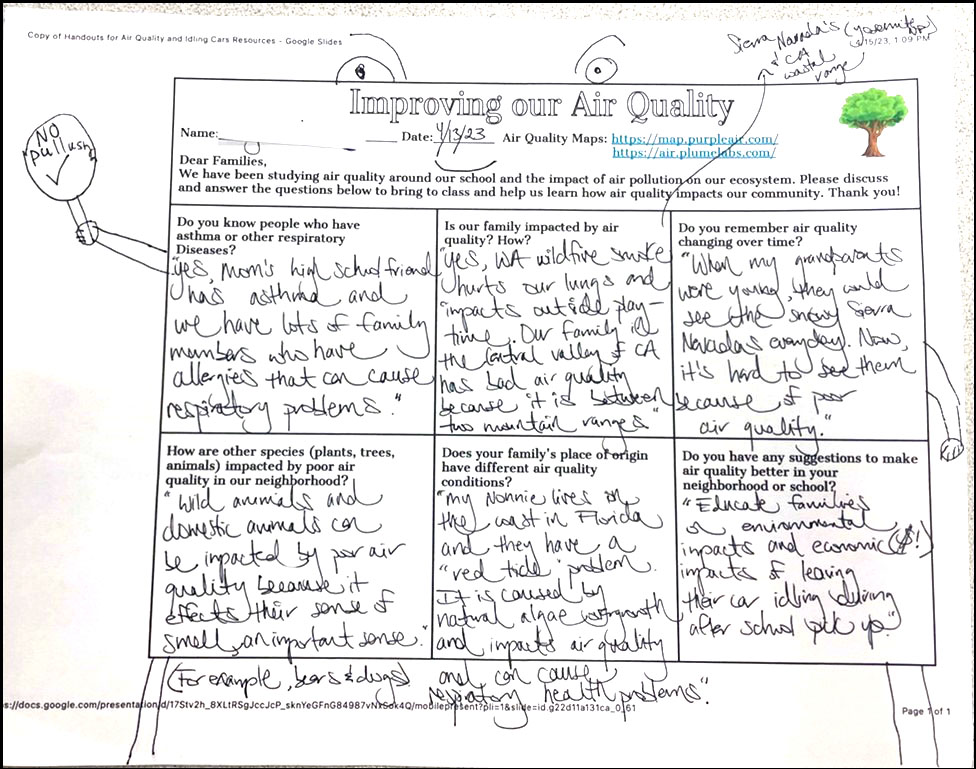
“Improving Our Air Quality” Student Work. Lesson Five: Defining the Problem Family / Elder Interview
In this course, teachers and students used their schoolgrounds as a case study to study and monitor air quality, learn about human-made emissions, and explore air quality activism in their community. Students learned how car idling during school pickup impacts air quality and the environment and actively explored how trees and native shrubs capture carbon and help increase air quality and contribute to the overall health of ecosystems. Perspectives of local community members were also incorporated into the study as students conducted take-home interviews with family members and elders focusing on cultural perspectives about air quality and trees. They learned to incorporate schoolyards and communities into their classroom learning and reflected on how local, relevant, and community-based science instruction can become integral to the pursuit of climate and education justice. Teachers came together to discuss optimal ways to engage their students in local Climate Action, invite local community stakeholders, and consider the impact of air quality on humans and other species. Exploring Equity, Engineering Solutions, and Local Climate Action lenses led to the emergence of community-centered student-generated climate action solutions.

Engineering Design Process work after student-led data gathering in collaboration with stakeholders
In this course, teachers and students used their schoolgrounds as a case study to study and monitor air quality, learn about human-made emissions, and explore air quality activism in their community. Students learned how car idling during school pickup impacts air quality and the environment and actively explored how trees and native shrubs capture carbon and help increase air quality and contribute to the overall health of ecosystems.
Perspectives of local community members were also incorporated into the study as students conducted take-home interviews with family members and elders focusing on cultural perspectives about air quality and trees. Teachers came together to discuss optimal ways to engage their students in local Climate Action and consider the impact of air quality on humans and other species. Exploring Equity, Engineering Solutions, and Local Climate Action lenses led to the emergence of community-centered student-generated climate action solutions.
During Air Quality storyline implementation, students learned to create local hand-on solutions to real-world air quality problems by engaging in the Next Generation Science Standards Engineering Design Process. Students led multiple hands-on field investigations, including gathering and analyzing information about car idling and the positive impact of planting native trees and shrubs in their neighborhood. Going outside to conduct observations helped students engage in meaningful place-based learning and center them as community changemakers.
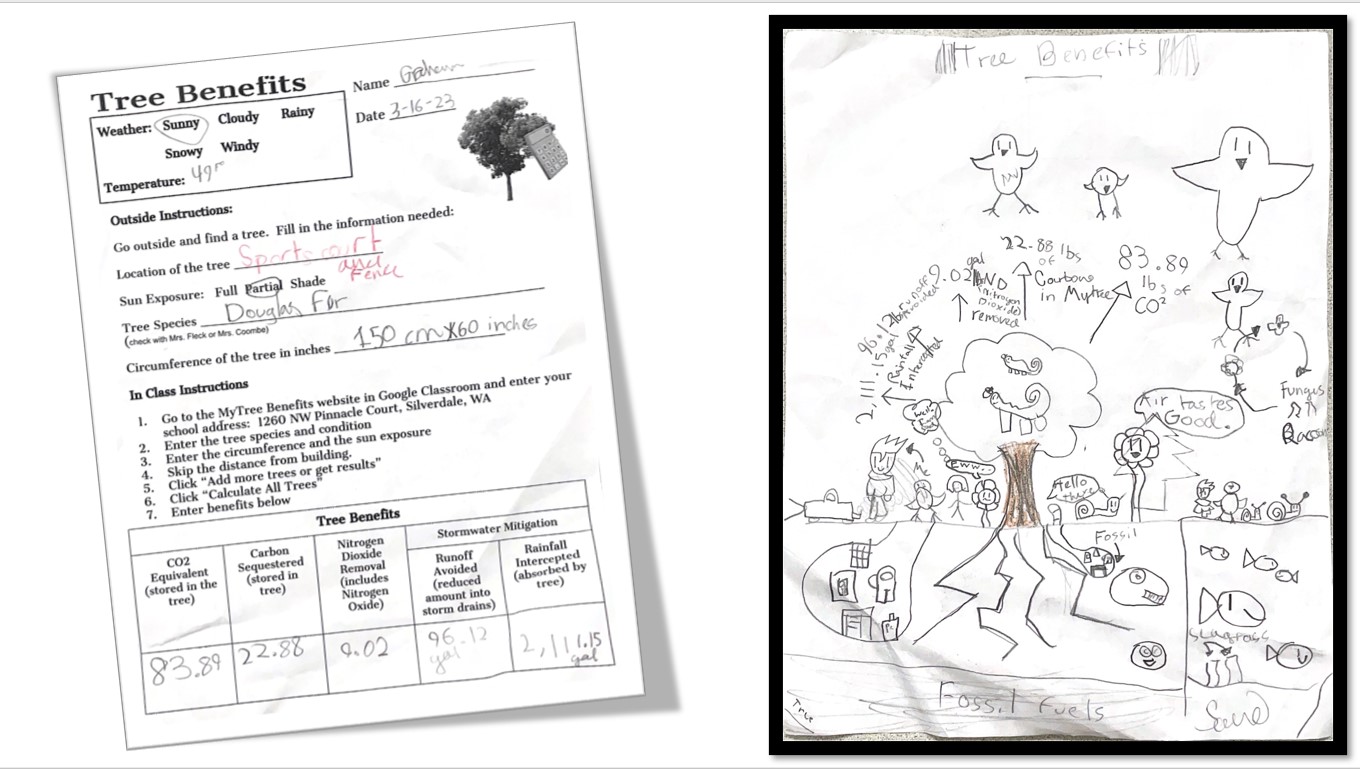
Students interpreted tree benefits data with words and pictures to further understand the carbon capture phenomenon: Lesson 6B: Tree Benefit Calculations
After working together to map and analyze their air quality findings, students were excited to create emission reduction advocacy campaigns to lessen car idling during pick up time and help plant and protect native trees and shrubs in their neighborhoods. Some highlights of this year’s classroom implementation outcomes include students writing persuasive essays to inform legislators, students meeting with principals to start car idling reduction campaigns, multilingual learners writing poems to explore place-based air quality differences between countries of origin and adopted communities, and students creating protection campaign for endangered trees in their schoolyard. Some teachers were eager to plan Air Quality storyline implementation strategies for the next academic year.
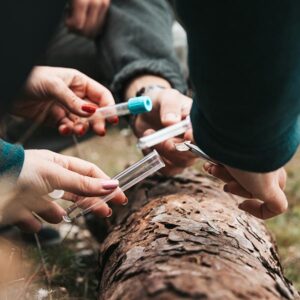 Throughout this course, teachers empowered students to explore the social-emotional side of climate change and use direct action to foster resilience and environmental justice while responding to real-life air quality challenges.
Throughout this course, teachers empowered students to explore the social-emotional side of climate change and use direct action to foster resilience and environmental justice while responding to real-life air quality challenges.
One of our star teacher collaborators and course facilitators describes it best: “Thank you for the awesome workshop – what a great experience for our students. Families have been telling me that their children are so excited about the project and are communicating a lot of information from their classroom learning experiences” (Chantal Fleck, Emerald Heights, Silverdale, WA)
IslandWood staff co-designed this new course with five inspiring elementary teachers who doubled as course facilitators and tested storyline implementation strategies. In addition, we are grateful for the input of Noemie Maxwell, Defenders of North SeaTac Park activist and local Burien librarian and Jeffrey Thomas, Timber, Fish and Wildlife Director for the Puyallup Tribe of Indians. Next year, Islandwood envisions broadening the teacher network and encouraging teachers to collaborate across regions to have a greater collective impact on air quality and the environment.

